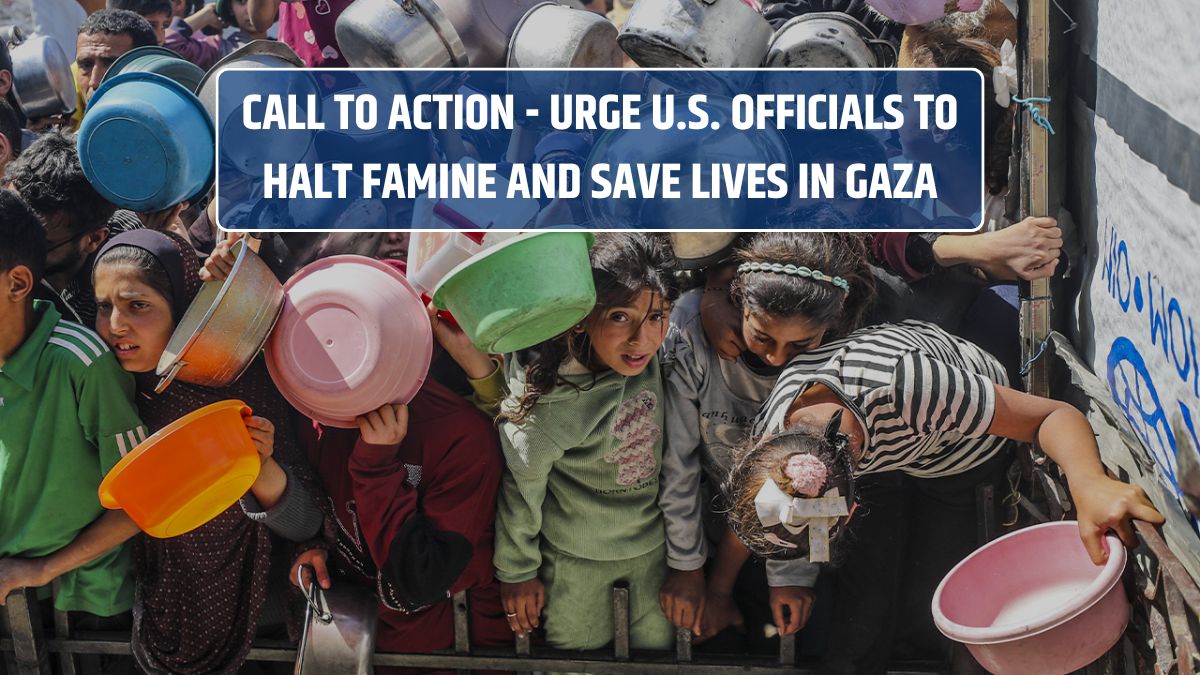A humanitarian catastrophe is unfolding in Gaza as Israel’s ongoing blockade prevents essential food supplies from reaching thousands of starving Palestinians. The situation has deteriorated so severely that the United Nations now describes conditions as a “worst-case scenario of famine.”
Crisis
Currently, Gazans face severe food shortages and the threat of starvation due to the continuous blockage by Israeli forces. With food access almost completely cut off, Palestinians in Gaza have very limited options. The UN’s previous 400 food distribution points inside Gaza have now been drastically reduced to just four locations controlled by Israeli military forces. This dire shortage forces vulnerable civilians—including women, children, and elderly people—into dangerous and overcrowded militarized zones in hopes of finding food.
The Church World Service and Churches for Middle East Peace, along with over 100 faith-based organizations, recently issued a desperate plea to governments globally. Their message is urgent and clear: “Act now to save lives before there are none left to save.”
Violence
Israel’s periodic so-called “tactical pauses” have not sufficiently addressed the humanitarian crisis. Instead, these brief interruptions in fighting have failed to deliver enough supplies to meet even basic nutritional needs. Disturbingly, Israeli forces have been reported to continue firing upon civilians waiting for food, including children. According to UN reports, since May, Israeli forces have killed over 1,000 Palestinians seeking basic humanitarian aid.
Doctors, healthcare workers, and journalists also face mounting risks daily. They struggle to perform their essential tasks under constant threat of airstrikes and amid the overwhelming specter of widespread hunger.
Relocation
Israeli authorities have revealed disturbing plans to forcibly relocate around 600,000 Palestinian civilians to a heavily militarized Israeli-controlled zone in southern Gaza. Civilians placed in this designated “humanitarian city” would reportedly be unable to return to their original homes or freely leave the restricted zone.
Churches for Middle East Peace strongly denounced these relocation plans as clear violations of international law and a troubling example of ethnic cleansing under the Fourth Geneva Convention.
Advocacy
Faith-based and humanitarian organizations in the United States urge immediate intervention. They have provided sample scripts and messages for constituents to communicate directly with legislators and President Trump, requesting urgent humanitarian actions:
- Public condemnation of Israel’s blockade and demand to allow sufficient food aid into Gaza.
- Support and co-sponsorship of the “Block the Bombs Act” (H.R. 3565), limiting US military aid to Israel.
- A strong call for an immediate ceasefire and the release of all hostages.
Taking action now can prevent further suffering and death, addressing core issues of violence and displacement, and paving the way for long-term peace and justice.
Social
Social media remains a powerful advocacy tool. Sharing direct appeals to legislators and the president online can amplify messages and drive action. Sample posts include:
- “@legislator: Gazans are starving. Israel must allow sufficient food aid to enter Gaza NOW.”
- “@POTUS: U.S. military assistance to Israel contributes to civilian suffering in Gaza. Support the Block the Bombs Act.”
Support
Beyond immediate aid and advocacy, Church World Service continues working closely with communities in Palestine and Israel through its Ecumenical Accompaniment Programme in Palestine and Israel (EAPPI), a program of the World Council of Churches. EAPPI volunteers from the US live in Jerusalem and the West Bank, documenting human rights abuses, supporting local peacebuilders, and fostering a peaceful resolution aligned with international law.
| EAPPI-US Action | Link |
|---|---|
| Volunteer | eappi.us/apply |
| Support | eappi.us/support |
The dire humanitarian emergency in Gaza urgently requires immediate global attention and action. Israel’s ongoing food blockade violates basic human rights and international humanitarian law, threatening innocent lives daily. Citizens worldwide, especially in the US, must urgently call upon their elected leaders to advocate for immediate humanitarian assistance and an end to hostilities, ensuring human rights and justice for all Palestinians.
FAQs
Why is Gaza facing famine?
Israel’s blockade prevents food aid from entering Gaza.
How many Gazans have died seeking food?
Over 1,000 people since May according to the UN.
What is the Block the Bombs Act?
A bill limiting U.S. offensive military aid to Israel.
What is the EAPPI program?
A World Council of Churches peace and justice initiative.
What action can Americans take?
Urge leaders to demand aid and support humanitarian laws.












